This fundraising page is being set up ahead of my trip to Bangladesh in January 2023. I will be distributing any funds raised directly to needy families (particularly widows and children) in my late grandfather's village of East Fazilpur, in the district of Ranaping, Sylhet. A large portion of the funds will be prioritised to the needy students of Tara Miah Khan International Academy — a high school named after and founded by my grandfather in 2000. I plan to be visiting the school, meeting with teachers and parents, and spending my time with the hundreds of students who attend. I also will be distributing men's and children's clothes, Hijabs and Abayas (for women), sports equipment and more. If anyone would like to contribute any of these items, feel free to get in touch. Updates will be posted on this page.
Any support, no matter how small, is appreciated!
قُلْ إِنَّ رَبِّي يَبْسُطُ الرِّزْقَ لِمَن يَشَاءُ مِنْ عِبَادِهِ وَيَقْدِرُ لَهُ وَمَا أَنفَقْتُم مِّن شَيْءٍ فَهُوَ يُخْلِفُهُ وَهُوَ خَيْرُ الرَّازِقِينَ
“Say, "Indeed, my Lord extends provision for whom He wills of His servants and restricts it for him. But whatever thing you spend [in His cause], He will compensate it; and He is the best of providers." [Qur'an 34:39]
For those who may be unaware, my grandfather, Al-Hajj Tara Meah Khan (may Allah have mercy upon him), passed away in 2010. He was an entrepreneur, philanthropist, human rights activist and British-Bangladeshi community leader. Today, hundreds of children attend the Tara Miah Khan International Academy, in Sylhet, Bangladesh, which he founded in 2000. He is mentioned in the book, ‘Bangladeshis in Britain’, by Professor Omar Faruque — a book covering several influential British-Bangladeshis, where his biography is outlined in detail.
He came to Britain with his father-in-law in the 1950s. First working in a brick factory, he later found success as a young businessman. In response to the call for Bangladeshi independence, he flew back to Sylhet with my grandmother, where he was detained and tortured by the Pakistani military for providing shelter to the Bangladeshi freedom fighters. In the middle of the night, he managed to escape and return to Britain. He dedicated the rest of his life to humanitarian work — constructing schools, bridges, roads, water wells and mosques all over Bangladesh, as well as directing community centres and a Bengali newsweekly in West London.
He was an illiterate, modest migrant who never once sought out recognition, popularity or affluence, but left a legacy which has forever changed my life and the lives of my mother, uncle, aunt and all 11 grandchildren he left behind. His funeral prayer in East London Mosque brought together people from all over the country to pay their respects; I personally remember the mosque being filled to its capacity and the congregation continuing onto the streets. A further 10,000 people took part in his burial ceremony in Sylhet, Bangladesh, where he was buried in his village alongside his parents. During my trip, on behalf of much of my family who will not be accompanying me, I also plan on visiting my grandfather's grave for the first time since he was put to rest over 12 years ago.
My grandfather passed away when I was only 10 years old, which means he never saw me become who I am today. I hope he is proud of me; I pray to become half of what he was... Please support me in continuing his legacy and giving back to the people he cared so much about.

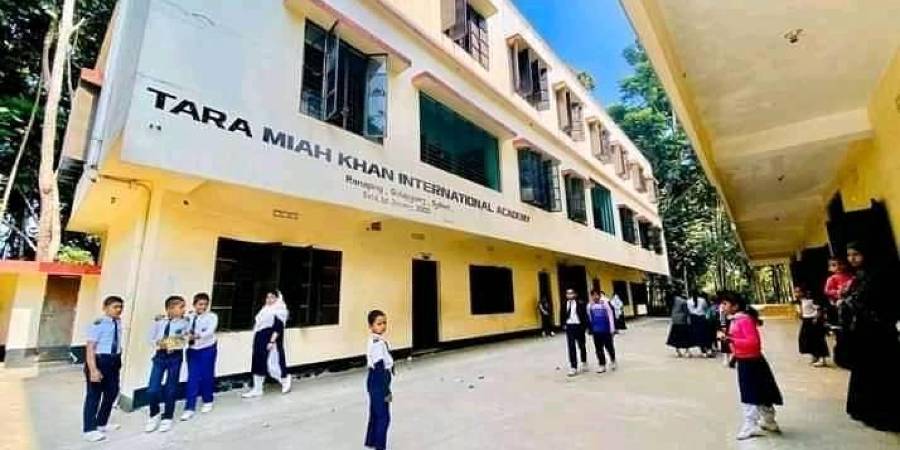
 My grandfather’s name on the school uniform’s ties. May Allah help us continue his legacy.
My grandfather’s name on the school uniform’s ties. May Allah help us continue his legacy.
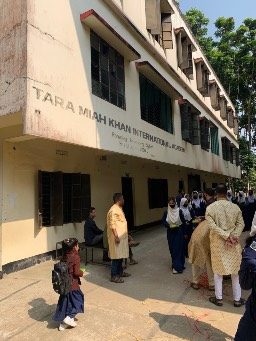 My grandfather paid special attention to young girls receiving an education, since in some places they’re denied this basic right.
My grandfather paid special attention to young girls receiving an education, since in some places they’re denied this basic right.
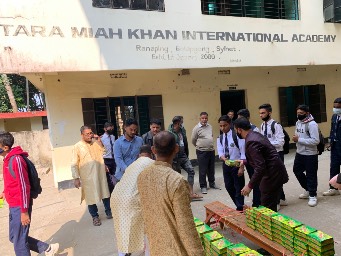 This school function took place on: Wed. 25th Jan. 2022. Students, teachers and parents were highly appreciative of our work!
This school function took place on: Wed. 25th Jan. 2022. Students, teachers and parents were highly appreciative of our work!
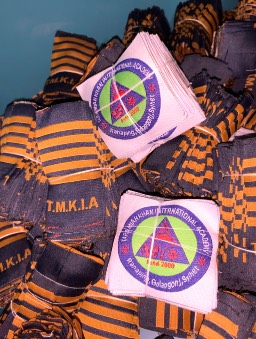 May Allah have mercy upon the souls of my grandparents, to whom this charity project was dedicated.
May Allah have mercy upon the souls of my grandparents, to whom this charity project was dedicated.
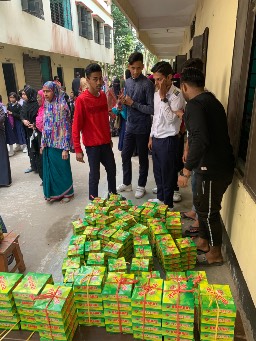 May Allah bless you all for contributing to this noble cause; and thank you for trusting us to deliver. Until next time!
May Allah bless you all for contributing to this noble cause; and thank you for trusting us to deliver. Until next time!
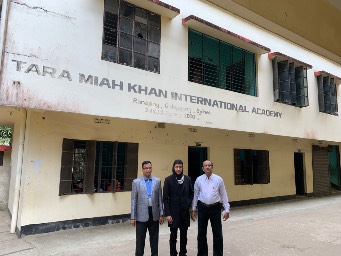 The school’s headteacher (left), me (middle) and the general manager of the school (right).
The school’s headteacher (left), me (middle) and the general manager of the school (right).
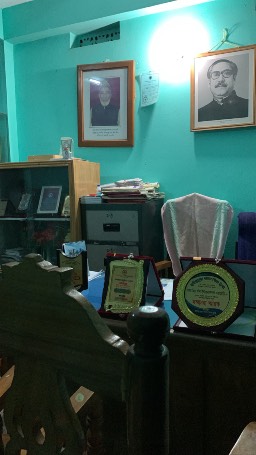 The remaining money (19,000 taka) was approved by me to be spent on the most urgent wall painting needs of the building.
The remaining money (19,000 taka) was approved by me to be spent on the most urgent wall painting needs of the building.
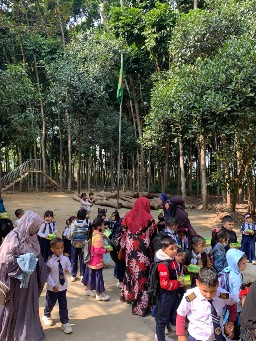 Our fundraised money going towards a special biryani lunch for all the school’s students, as well as sweets and chocolates. (3/3)
Our fundraised money going towards a special biryani lunch for all the school’s students, as well as sweets and chocolates. (3/3)
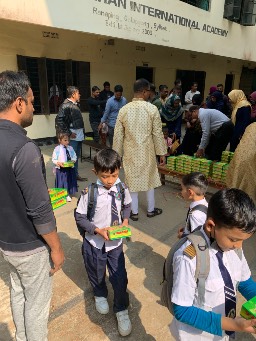 Our fundraised money going towards a special biryani lunch for all the school’s students, as well as sweets and chocolates. (2/3)
Our fundraised money going towards a special biryani lunch for all the school’s students, as well as sweets and chocolates. (2/3)
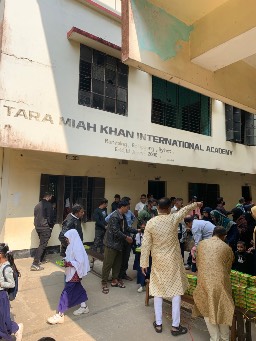 Our fundraised money going towards a special biryani lunch for all the school’s students, as well as sweets and chocolates. (1/3)
Our fundraised money going towards a special biryani lunch for all the school’s students, as well as sweets and chocolates. (1/3)
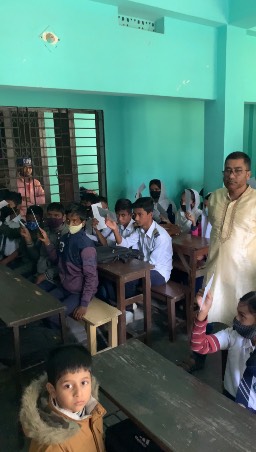 Our fundraised money being given to the poorest students of the school.
Our fundraised money being given to the poorest students of the school.
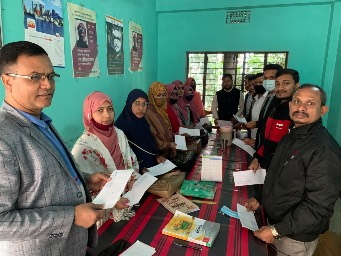 Our fundraised money being given to all the teachers and employees of the school.
Our fundraised money being given to all the teachers and employees of the school.
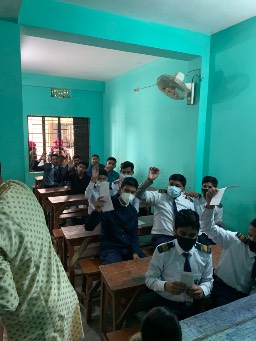 Our fundraised money being given to the highest achieving students of the school. (3/3)
Our fundraised money being given to the highest achieving students of the school. (3/3)
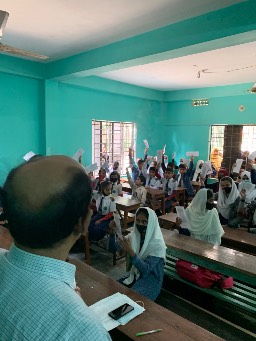 Our fundraised money being given to the highest achieving students of the school. (2/3)
Our fundraised money being given to the highest achieving students of the school. (2/3)
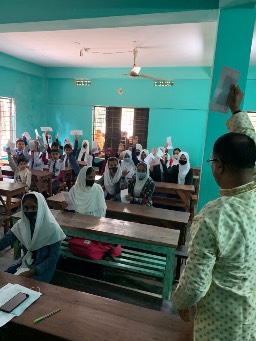 Our fundraised money being given to the highest achieving students of the school. (1/3)
Our fundraised money being given to the highest achieving students of the school. (1/3)
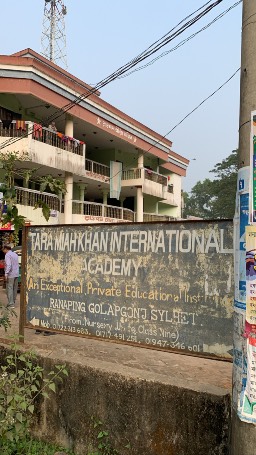 Tara Miah Khan International Academy (in Sylhet, Bangladesh), founded by my late grandfather in January 2000.
Tara Miah Khan International Academy (in Sylhet, Bangladesh), founded by my late grandfather in January 2000.
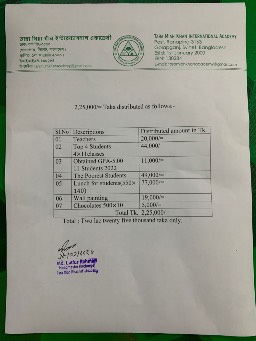 SUMMARY REPORT: Fundraised: £1540 —> rounded up to £1600 = 219,200 Bangladeshi taka —> rounded up to 225,000 Bangladeshi taka.
SUMMARY REPORT: Fundraised: £1540 —> rounded up to £1600 = 219,200 Bangladeshi taka —> rounded up to 225,000 Bangladeshi taka.

